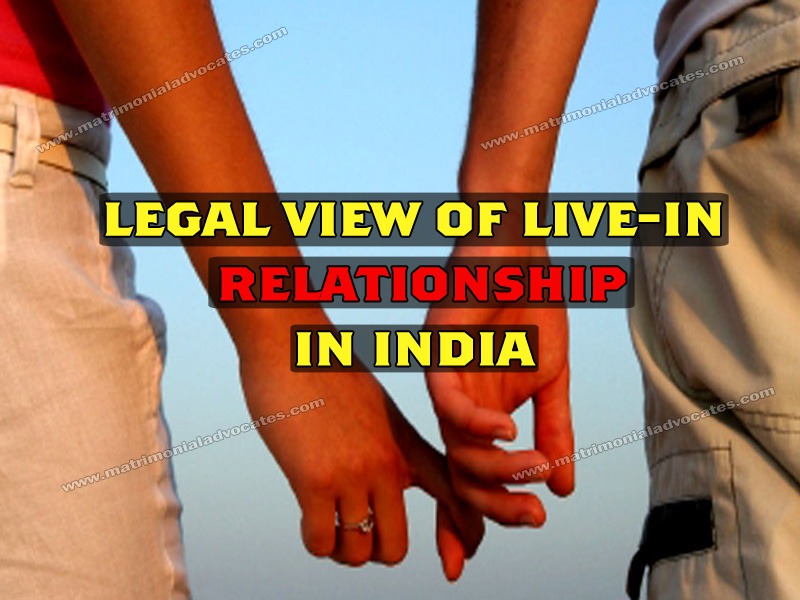
Spouse in Live-in-Relationship may get prosecuted for “Bigamy”
In the contemporary world, the social fabric is evolving tremendously which brings about numerous effects to the relationship of humans. There was a time when a union of two souls “Marriage” was highly revered and considered sacrosanct by the couples. Now in the world of consumerism and information and technology, the relationship of “Marriage” has come under heavy stress on account of changing expectations and insecurities of married people. The married couples are either formally breaking up by resorting to “Divorce” or getting into extra-marital relationships to fulfill their needs from the marriage.
“Live-in-relationship” is when two people come together to live as husband-wife in the same place for a prolonged duration without being married to each other. It has been observed of lately that in some instances, spouses are living with other person than their spouse.
In Harpreet Kaur and another Versus State of Punjab and others CRWP-10399 of 2021, held by Justice Ashok Kumar of Punjab & Haryana High Court
“Spouse involved in live-in-relationship with another person may attract legal action for “Bigamy” under section 494 of Indian Penal Code, 1860”
With a view to gain clarity with respect to the aforementioned judgment, the concept of “Bigamy” and “Live-in-relationship” are to be understood.
The definition of “Bigamy” is mentioned in the Indian Penal Code, 1860 in section 494:-
“Marrying again during lifetime of husband or wife.—Whoever, having a husband or wife living, marries in any case in which such marriage is void by reason of its taking place during the life of such husband or wife, shall be punished with imprisonment of either description for a term which may extend to seven years, and shall also be liable to fine.
(Exception) —This section does not extend to any person whose marriage with such husband or wife has been declared void by a Court of competent jurisdiction, nor to any person who contracts a marriage during the life of a former husband or wife, if such husband or wife, at the time of the subsequent marriage, shall have been continually absent from such person for the space of seven years, and shall not have been heard of by such person as being alive within that time provided the person contracting such subsequent marriage shall, before such marriage takes place, inform the person with whom such marriage is contracted of the real state of facts so far as the same are within his or her knowledge.”
“Bigamy” simply means a married person gets married again or involves in a marriage like relationship with another person in the lifetime of her or his spouse.
Definition of “Live-in-Relationship” has evolved through the following judgments:
“A live-in relationship is a continuous cohabitation for a longer period between two people who are not legally married to each other but share a common household.”
“Live-in relationship between consenting adults is legal under the Indian law if the requisites of marriage such as legal age of getting married, consent, and soundness of mind are fulfilled. No law allows or denies such relationships. The Supreme Court first time observed live-in relationships valid in the case of” Badri Prasad v. Dy. Director of Consolidation.
In another famous case of Khushboo v. Kanaimmal and Anr the Supreme Court held “that living together is a right to life covered under Article 21 of the Indian Constitution; thus, despite being considered immoral by society it is not an offence in the eye of law.”
The Apex Court in the landmark Judgment of IndraSarma vs VKV Sarma observed “that if both the partners are unmarried and entering into a mutual relationship, it does not constitute any offence”
Live-in relationships are in the nature of marriage, as the couples are living together for a long period and presenting themselves as husband and wife. Thus, they come under the ambit of the PDV Act, 2005, and the woman in a live-in relationship can take protection under this Act, 2005, and can also claim maintenance. Thus, this Act gives legal recognition to relations outside marriage.
The Punjab and Haryana High Court while dealing with a petition filed by a woman , along with her partner, who was living with her partner without obtaining divorce. The petitioners (married woman and her partner) approached the Punjab and Haryana High Court seeking issuance of directions to respondents to protect their life and liberty at the hands of private respondents, submitting that they are in live-in-relationship against the wishes of the private respondents.
The Hon’ble High Court observed that the petitioner is legally wedded wife of respondent no.4, and without seeking divorce from her spouse, she is living with another person. The Court observed thus: “Once petitioner No.1 is a married woman being the wife of respondent No.4, the act of petitioner (married woman) particularly may constitute an offense under Sections 494/495 IPC”.
The aforementioned judgment has been announced in the wake of numerous instances wherein the spouses are living with other person than their spouse and seeking the protection of the Court which indirectly recognizes their illegal union with the other person.
Conclusion
The aforementioned judgment of the High Court has made it clear that in the garb of filing such petitions these couples who are living in illegal and anti-social relationships are attempting to get the stamp of the Court. These relationships do not fall in the category of “Live-in-Relationship” therefore the married people having marriage like relationship or living with anyone other than their spouse can not be recognized as “Live-in Partners”.
In the light of this judgment, it can be stated in no uncertain terms that “A married person having marital relationship with another person than spouse may be prosecuted under section 494 of IPC, 1860”.





